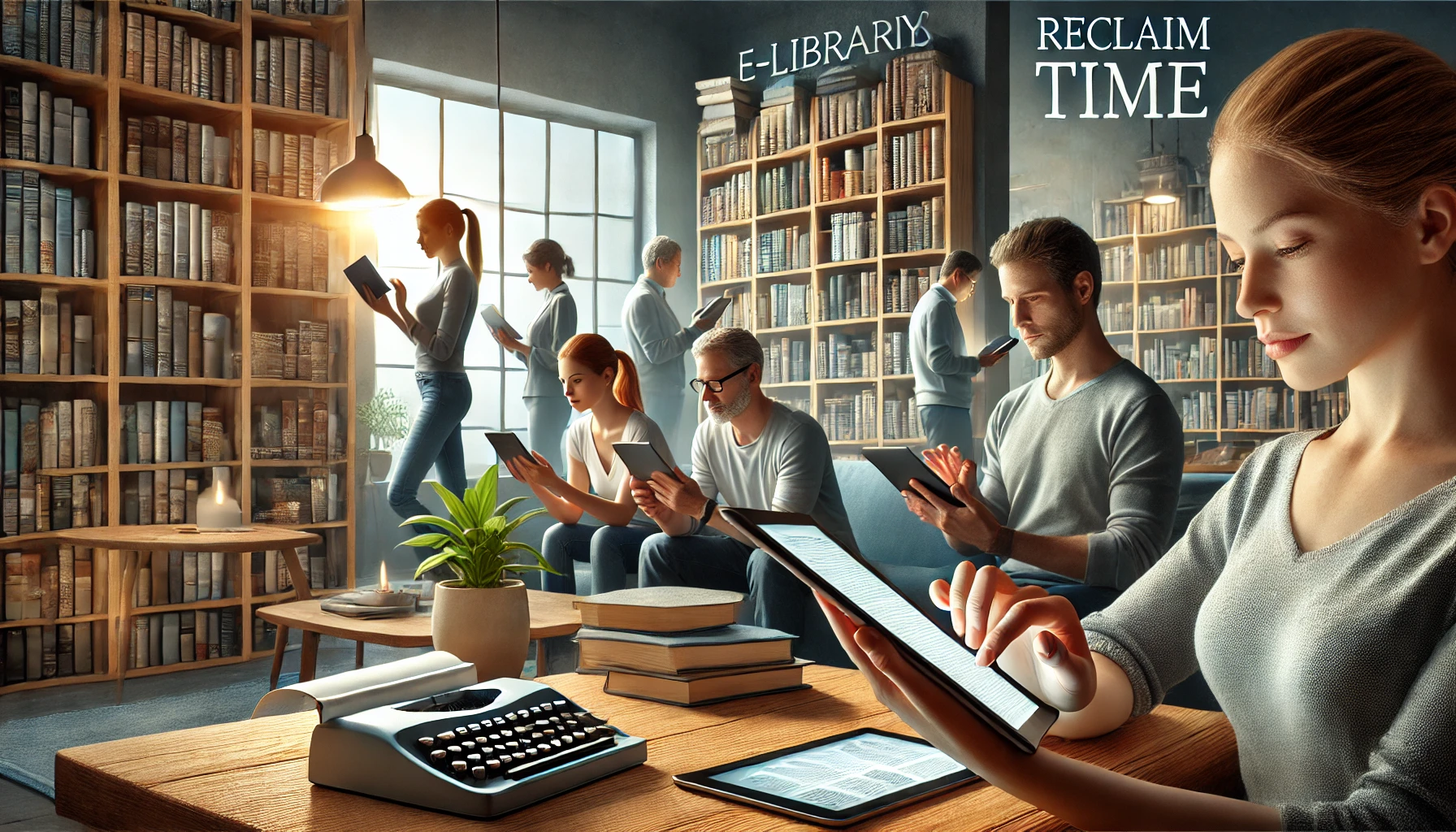How Readers Are Reclaiming Time with E-Libraries
In a world that spins faster than it used to people have found themselves longing for quiet corners and unhurried moments. The old ritual of visiting a library and wandering between shelves is being reimagined. Not replaced but reshaped. E-libraries have taken what once required a calendar slot and turned it into a moment that can slip into any pocket of the day. This quiet shift has changed not just how people read but when.
Someone commuting with a screen in hand is not just passing time but reclaiming it. A lunch break turns into a chapter. An early morning stretch becomes a paragraph. Where time was once chipped away by errands and noise readers are now carving out small havens filled with poetry essays or entire novels. These windows open through e-libraries have made it easier to fit stories into life rather than putting life on hold to find them.
The Quiet Power of Convenience
There’s something satisfying about skipping the queue. E-libraries have given readers a front-row seat without needing to leave home or watch the clock. A single sign-in can open shelves that stretch across centuries. Instead of navigating traffic or library hours the journey begins in a blink and often ends at a favourite armchair or a quiet park bench.
This ease isn’t about cutting corners. It’s about choosing how to spend what little time the day offers. Between Project Gutenberg, Open Library and Z lib readers enjoy a huge digital library that would once have taken up entire buildings. The shift from paper to screen has not replaced the magic of reading but has simply moved the doorway. Now the door opens whenever the reader is ready and closes gently when it’s time to get back to life.
Time-Saving Habits Readers Swear By
Some small rituals have emerged among those who’ve embraced e-libraries. Habits that give structure without fuss. There’s comfort in routines but these ones are flexible like soft bookmarks that remember without pressing too hard. Here are a few ways readers are making the most of their minutes:
Setting Daily Reading Goals
Many have started setting gentle goals to read a certain number of pages each day. Not as a challenge but as a rhythm. This habit often blends into morning coffee or evening wind-down routines. It turns reading into a steady companion instead of a rare guest. Digital bookmarks and progress trackers make it easy to pick up where things left off even after a long day.
Creating Digital Bookshelves
Organising a personal bookshelf online can feel like rearranging a room without lifting a single object. Readers build collections based on moods interests or plans for the future. Some save old favourites others gather titles they have always meant to read but never did. The act of sorting brings a sense of control and purpose and revisiting the shelf brings comfort on tired days.
Mixing Genres Throughout the Week
One clever habit involves changing genres as the week unfolds. Starting Monday with history easing into Thursday with mystery and ending Sunday with short stories or poetry. This variety keeps things fresh and prevents reading fatigue. E-libraries make this switch simple since there’s no need to return anything or worry about due dates. The whole library waits quietly ready to match the reader’s mood.
These small practices have become anchors. Not time-consuming but time-saving. By blending reading into daily life rather than setting it apart readers find themselves spending more time with books without noticing the cost.
A New Kind of Bookmark
Reading is not always about escape. Sometimes it’s about returning. E-libraries allow people to revisit childhood favourites or stories once read in school without hunting through old boxes or paying for rare editions. That familiar cover or first sentence brings back more than a plot. It brings back a version of the reader too. In this way digital bookshelves hold not just stories but memories.
This emotional thread has made e-libraries more than just a tool. They have become a part of everyday life. For some it’s the first thing opened in the morning. For others it’s the last light before sleep. These are not just habits. They are gentle pauses in a world that rarely stops moving. Books found and read digitally leave behind no clutter only thought.
Finding the Flow Again
E-libraries have done something quiet but profound. They have made reading feel possible again even for those who thought they had no time left. The magic is not in the screen or the format but in the way it slips into a day like sunlight through a curtain. No grand announcement. Just presence.
Reclaiming time does not always mean doing more. Sometimes it means choosing better. And when stories arrive without fuss when words wait patiently when the library walks beside its reader instead of sitting far away it becomes easier to breathe easier to think and perhaps most of all easier to read again.











